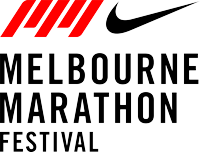
After you’ve reached a fitness goal, it may be hard to find that same motivation. As the excitement of achieving a fitness milestone wears off, try these tips for getting out of your post-event slump.
In the lead-up to a big fitness event, our focus can be unwavering.
Crossing the finish line feels like nothing else, with physical exhaustion coupled with mental elation proving to you that you can do almost anything you set your mind to. But when the next week rolls around, finding the same motivation may be challenging. This is called a post-event slump.
“After so many hours each week of training and overcoming personal challenges, feeling a bit flat after a big event is over is to be expected,” explains Debi Hazelden, triathlon coach at Can Too. “It’s a lot easier to get motivated when you have a goal or event to build up to.”
If you’re experiencing a post-event slump and struggling to get back into exercising, try these strategies:
1. Take a break
Rest and recovery are crucial after a big event, so allow yourself to stop clocking up kilometres in the days following a big race.
“The length of the rest is related to the volume and intensity of the training,” explains Adrian Holdsworth, Fitness First trainer. “Long-term lack of recovery is a sure path to injury and dysfunction. Remember, nobody can be at peak fitness 365 days a year.”
Speak to a trainer about how much rest you need after your event and tune in to your body’s signals.
2. Diversify your training
If a marathon or triathlon was your lifelong fitness goal and you’ve hit it, you might now need to take a different approach to fitness post-event – perhaps with more focus on fun!
“Trying a different event or sport can give you the mental and physical break you need without being completely sedentary,” Holdsworth says. And it might put you in good stead once you feel like hitting the road again.
“You might be a runner but doing some kayaking for some weeks will rest your legs, and the core and upper body strength you gain could actually improve your running,” he points out.
3. Stagger your goals
Instead of working towards one elusive goal, exercise physiologist Jonathan Cawte suggests mapping out multiple goals.
“Master shorter distances first, then set yourself a greater challenge,” he suggests. “The problem with people being under-prepared for a fitness event is that the training can seem gruelling and then you only just make it through.”
Ease yourself towards big distances: “You’re more likely to want to keep participating in these events if you’ve trained for them properly,” Cawte says.
4. Smell the roses
There are few feelings as satisfying as finishing a challenging event, so remember to savour it.
“Don’t forget to put a pic of yourself crossing the finish line on your fridge,” she says. “Be proud of your achievement!”
While you savour your victory, it’s also a good idea to set another goal. You could even do this before you complete an event, to minimise your post-event slump afterwards.
“Set a follow-on goal within the next six months,” Cawte says. “It’s also a good idea to schedule the day you plan to go back to training before you complete the event.”
5. Factor in fun
If you eat, breathe and sleep your training regimen, there’s a good chance you’ll get bored (and so will those around you if you talk about nothing else!). This can contribute to a post-event slump.
“Training needs to be sustainable and realistic to keep it up long-term,” Hazelden says. “Make sure you factor in date nights, early nights, dinner with friends, sleep-ins and massage into your training program, alongside fitness, so that you’re adopting a lifestyle that’s balanced, healthy and sustainable.”
This article was originally published by Bupa Healthlink
























